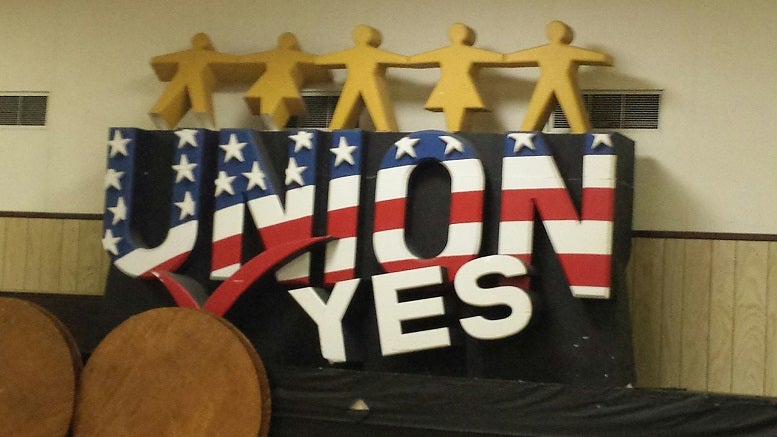Uncategorized
Another Union Challenge Awaits at Supreme Court

The voices of public sector workers are again being threatened by anti-worker forces and non-members who pay less and benefit from union representation, but seek a free ride on the backs of their union co-workers.
The case, Janus v. American Federation of State, County and Municipal Employees, deals with an Illinois state government employee who doesn’t want to pay “fair share” fees covering contract bargaining and representation activities allowed as part of the 1947 Taft-Hartley Act.
The case is expected to touch on main of the same issues raised in Friedrichs v. California Teachers Association, where the Supreme Court was largely expected to side with plaintiffs last year but ultimately deadlocked on after the unexpected death of Justice Antonin Scalia left it with only eight members.
Now that the high court has added Neil Gorsuch as its ninth member, however, unions are rightfully concerned about how justices might rule on another such case. Luckily, the Teamsters are addressing the issue head on, making the matter a top topic of conversation during the Unity Conference held last month.
As Local 320 Principal Officer Brian Aldes told attendees at the conference, his Minneapolis local made up of public sector workers didn’t back down from the question of, “How do we move forward without being distracted from our day to day work of contract enforcement by right to work fire drills every election, legislative session and Supreme Court session?”
Many locals have made it their mission to convert fair share payers into full-fledged members, and it is working. Aldes noted that within nine months, almost 90 percent of public workers covered under union contracts had become members. That needs to be replicated everywhere.
Sticking up for union jobs is essential because they pave the way to a middle-class lifestyle. The median union worker makes more than $200 more a week than non-union workers. That’s why the Teamsters stressed the need for more union jobs in its “Let’s Get America Working” campaign that debuted in 2015. Workers earning more don’t just help their families; they help the economy at large as well because they spend more.
Unions can’t control the courts. Justices will ultimately have the final say here. But the Teamsters and other labor groups can be proactive in making sure that those with union ties understand what they get from their membership and what is at stake if unions are undermined. That way anti-worker activists won’t be able to hurt workers in their wallets.